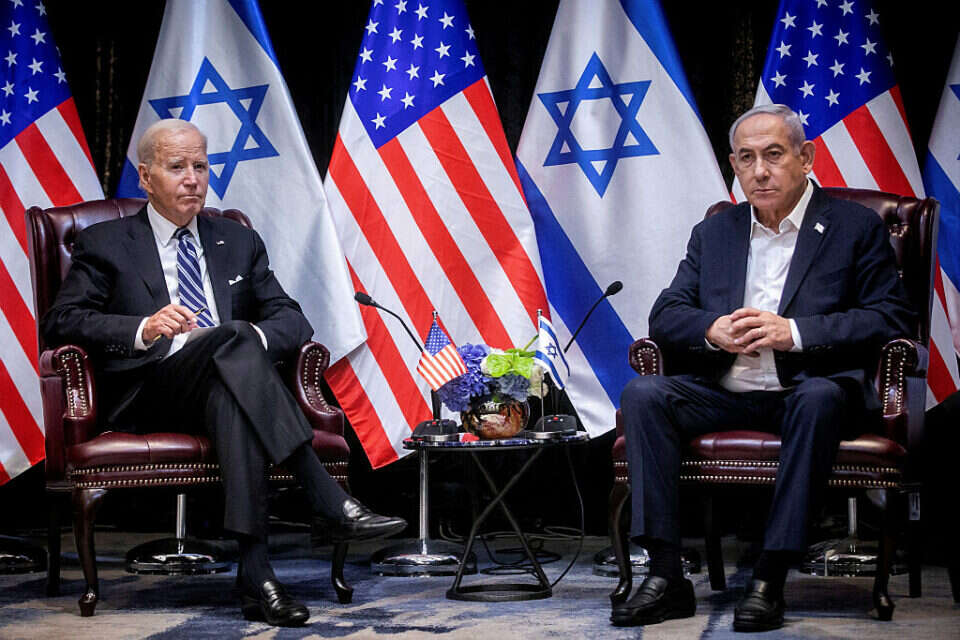Many matters will have to be opened up and reexamined here after the war. One of them, which is rarely talked about now, is Israel's almost complete dependence on the United States, both militarily and politically, as revealed during the fighting. The clearest expression of this symbiotic relationship was embodied in the precedent-setting participation of US Secretary of State Antony Blinken in War Cabinet meetings.
The enormous benefits of American aid and backing to Israel are clear to all: NIS 4 billion in annual military aid, ongoing supply of ammunition in combat, and international backing vis-à-vis hostile countries and organizations such as Iran, Russia and the UN. There is less talk about the damage: Israel is limited and not free to conduct itself as it pleases, and according to its best considerations, neither during the war nor the day after.
An American destroyer in the Mediterranean, photo: AFP
The dependence is enormous: from relatively simple combat items in the field of artillery and aircraft bombs, of which Israel does not produce enough, to much more sophisticated weapons. It is not possible, and probably not worthwhile to be completely freed, from this dependence, but we must strive to reduce it as much as possible.
Two years ago, this issue began to be examined in the rooms of Israel's political and security establishment. A preliminary document was written and submitted to Prime Minister Netanyahu, but the deep internal rift over the legal reform thwarted that clarification, which was only in its infancy.
Today, the direction is clearer to many more: Israel must prepare itself for a much rainier day in its relations with the United States, for example, the possibility that the White House will have a progressive president who is hostile to Israel; Demands we cannot live with, such as dividing Jerusalem, leaving the Golan, evacuating settlements or far more significant restrictions on vital military activity, and even a scenario in which the United States itself finds itself in distress, to the point of having to cut aid at its current levels.
Reducing dependence may sound like an imaginary goal at the moment, but so does the discourse surrounding the cancellation of annual US civilian aid to Israel, which was gradually eliminated, according to Israel's decision, and no longer exists. It won't happen in one day either, and it will take years, but it's the right way.
IDF forces in Gaza. Israel is not acting as it wishes, Photo: IDF Spokesperson
Our local military industries, for example, need to gradually free themselves from contractual constraints to which Israel is obligated, according to agreements with the United States, so that they can independently develop more types of weapons, as the well-known Sages say: If I am not for me, who am I.
In 1982, U.S. Secretary of State Gen. (ret.) Alexander Haig defined Israel as "the largest U.S. aircraft carrier in the world, unsinkable, without a single U.S. soldier on board, and located in an area vital to U.S. national security."
The F-35 aircraft, soon to be in the IDF, photo: Photo: Lockheed
Indeed, the United States also benefits from relations with us (even though it does not depend on us). Israel is a laboratory for many defense developments in real combat conditions, in which planes, tanks, missiles and other munitions are tested. The heads of the US Aerospace Industries once said that no less than 700 upgrades were added to the F-16 as a result of Israeli advice and experience. When this profit was quantified into dollars and time, it was found to be savings of many years of research and billions.
Dependence on the United States will not disappear, certainly not in the near future, but work can and must be done on reducing it today, so that in the future Israel's space for independent conduct will increase.
Wrong? We'll fix it! If you find a mistake in the article, please share with us

